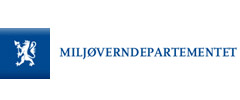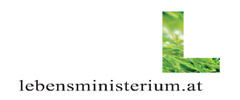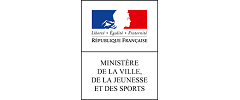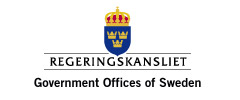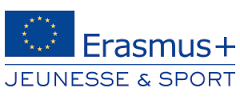Small-scale water supplies in rural areas in Macedonia
Civil society conference to introduce our Water and Sanitation Safety Planning (WSSP) project and Comendium in Romania and Macedonia“
02.12.2016 |

On the 27th of October a multi-stakeholder conference on small-scale water supplies in rural areas was held in Skopje among the project “Water and Sanitation Safety Planning (WSSP) in Romania and Macedonia“, a financially supported by BMUB. One main outcome of the project will be a Compendium on WSSP which can be used by schools, students, and local authorities.
The project, in cooperation with all stakeholders, aims to increase assess to water and sanitation from both technical and medical aspects, and to define the challenges and problems of small water systems in Macedonia’s rural areas. The specific objectives of the projects were: establishing a coordinating body for information regarding problems with drinking water and sanitation; improving the current situation of water pollution; improving the situation and dealing with water pollution after the summer floods in Skopje; managing menstrual hygiene.
After the introductory presentation of the conference program, Filip Spirovski (Director of the NGO Journalists for Human Rights) stressed the importance of continuing influencing all stakeholders involved in water supply and sanitation in rural areas.

The project activities were presented by Aleksandra Radevska, project coordinator at JHR. Who said:
“We implement the project in rural municipalities and regional schools. The target group where workshops were held are students, teachers, media, local NGOs, representatives of local government and water operators. The introduced Compendium is used for developing plans for safe water and sanitation, available in three languages: English, Macedonian and Albanian. The goal is to become part of optional classes in primary schools in Macedonia, and it is already used in 6 schools in Aerodrom municipality.”
Benefits from the water and sanitation safety plan (WSSP) are:
- Communities understand the ecological connection and impact on water quality
- Communities understand their responsibility for water quality
- The water supply can be improved through their activities
- Set of measures to protect the water
- Review of the protection zones
- Cooperation with farmers – face to face consultations
- Development of product marketing strategies (water and food)
- Raising awareness among citizens, authorities and local media
- Transparency about problems, solutions and finance
Gordana Nestorovska from NGO Radar talked about sustainable development goals (SDGs) and water and sanitation as a prerequisite for municipal development in all spheres. Sustainable development implies development that meets the needs of current generations without compromising the ability of future ones. Global targets (refer to the period from 2015 to 2030) are intended to provide the countries with a roadmap for funding and formulation of government policies in the next 15 years. With the 17 goals we want to achieve: economic stability, sustainable economic development, promotion of social fairness and protecting the environment, strengthening both gender equality, empowerment of women and equal employment opportunities for all and the protection, survival and accomplishment of full potential for development of children, including through education.
Access to water, sanitation and hygiene is part of the corpus of human rights. It is estimated that 40% of the world population has no access to drinking water, and projections are that the percentage will grow. Assuring access to safe drinking water and sanitation for the entire population without discrimination, is an obligation for all governments. Everyone - whether rich or poor; men, women or children; people living in urban or rural areas; having adequate housing or not; people with physical disabilities or people living in institutions such as prisons or hospitals - have the right to access these services.
Safe water and sanitation are the basis for achieving good health and gender equality. Sustainable management of water contributes to better management of food production and energy contributing to decent work and economic progress. It contributes to the preservation of aquatic ecosystems, biodiversity and acting against global warming.
About 2% of the territory of the Republic of Macedonia is water surface. There are 35 rivers and 53 natural and artificial lakes. The hydrographic plan shows four basins: Vardar, Black Drim, Strumica and the basin of South Morava. According to the quantity of water resources Macedonia belongs to the area with sufficient water resources but with very uneven distribution. Managed by three ministries, the Legislation is largely harmonized with EU directives and other international documents.
The National Strategy for Sustainable Development in Macedonia was adopted on 12.01.2010. The period of implementation is 2009-2030. It has seven strategic objectives based on three guiding principles and divided: long, medium and short term goals pertaining to the important issue of EU membership as well as the achievement of sustainable development in Macedonia. Level 1: Strategic Commitment no. 1: Achieving EU membership and compliance with the Strategy for Sustainable Development of EU; Strategic Commitment no. 2: Raising awareness and commitment to sustainable development; Strategic Commitment no. 3: Introduction of e-governance as the instigator of sustainable development. Level 2: Strategic Commitment no. 4: Directing the public sector to sustainable development; Strategic orientation no. 5: Directing the financial sector to sustainable development; Strategic orientation no. 6: Directing the private sector to sustainable development. Level 3: Strategic Commitment no. 7: Implementation of pilot and demonstration projects for sustainable development.
Report on the quality of drinking water (IPH, 2014-2015)
Access to safe drinking water is 97% and categorizes Macedonia among countries with very high access; 37% of the population in Macedonia is estimated to live in rural areas; 27% of the rural population is connected to municipal water systems; about 62% used private fountains; about 4% of the rural population depends on the local water supply facilities such as wells, pumps etc.
Challenges
Improving access to safe drinking water to 98% in 2020; Improving the processes of water distribution, including regulation of the protection zones around the springs; improving water and wastewater purification capacities; sewage, especially in rural areas; harnessing the energy potential of the water and waste generated during its purification; dealing with waste and soil pollution; implementation of new technologies.
Related News
Calling for periods free from plastic & hazardous chemicals
Letter to Frédérique Ries, MEP, European Parliament on behalf of the #BreakFreeFromPlastics movement
04.09.2018
Together for sustainable sanitation and water security worldwide!
Stockholm, 26-31 Aug 2018: WECF participated in the World Water Week 2018 to further support the worldwide implementation of SDG 6
01.09.2018
Fifth meeting of the Expert Group on Equitable Access to Water and Sanitation, 26 - 27 June 2018
WECF shares experiences on developing and implementing Equitable Access Action Plans
27.07.2018
National Round Table and Training on Drinking Water Issues and Priorities in Macedonia
Working Package 2 – Educational measures for responsible institutions and drafting of regulations, among the on-going project „Water and Sanitation Safety Planning in Romania, Albania, and FYR Macedonia”
27.07.2018
Training for Teachers on Water and Sanitation Safety Planning
Women in Development and WECF organise a 2-day workshop in Shkodra region, Albania
27.07.2018



















